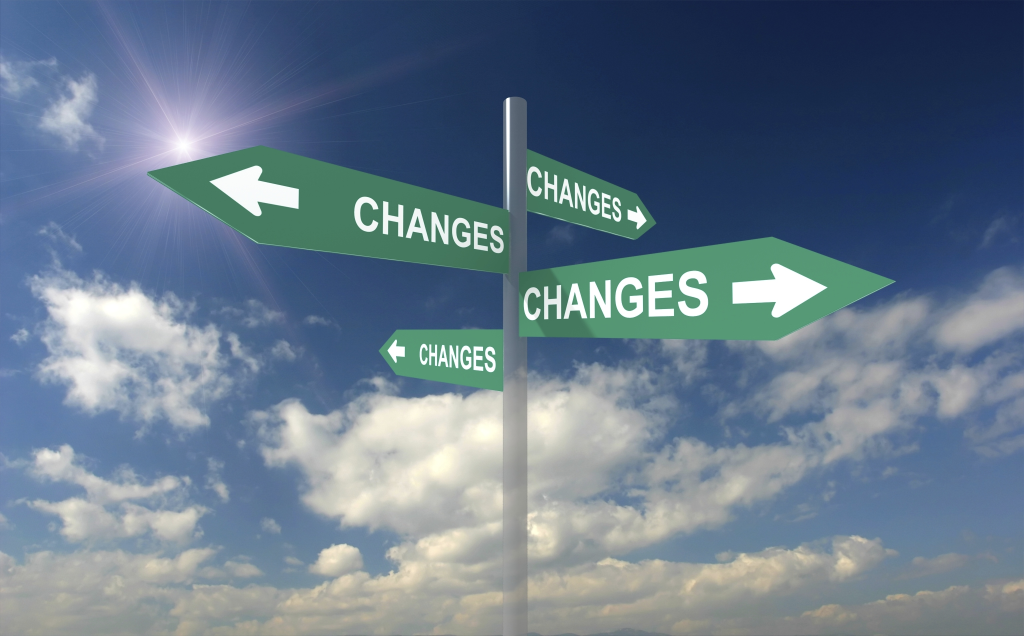
Change is the one constant in our lives, an ever-present force driving personal growth and self-improvement. Embracing change is essential for harnessing the opportunities it brings, as research reveals fascinating insights through the lens of change psychology. A notable Harvard study on change highlights how individuals can evolve dramatically, challenging the belief that transformation is reserved solely for youth. To grow, cultivate resilience in the face of disillusionment, and acknowledge that the complexities of change impact our happiness. In this exploration, we reflect on how our capacity to adapt and thrive is an integral part of the human experience.
Transformation, adaptation, and evolution are integral facets of life, influencing who we become over time. The dynamics of personal development and self-improvement are often interwoven with our experiences and challenges, shaping our responses to various situations. A deep understanding of change psychology can illuminate pathways for growth, urging us to accept and adapt to new circumstances. Any sizeable endeavor for self-betterment often hinges on our willingness to leave behind old habits and embrace new perspectives. By recognizing the inherent nature of life’s transitions, we can cultivate a healthier mindset towards the inevitable shifts we encounter.
The Psychology of Change: Understanding Our Mindset
Change is an inherent part of the human experience, and understanding its psychology is crucial for personal growth. Researchers, including those from the Harvard Study on Adult Development, have demonstrated that our minds are not fixed but adaptable, allowing for significant emotional and cognitive transformations throughout life. For some, embracing change can lead to a path of self-improvement, pushing individuals to break free from limiting beliefs and behaviors that hinder their growth. However, the fear of the unknown often prevents others from taking the leap towards positive change.
Moreover, the dynamics of change are influenced by individual temperament and life experiences. While some may instinctively resist change due to their personality traits, others feel empowered to take risks and pursue new opportunities. The contrast in responses highlights the complex interplay between psychological resilience and vulnerability to adverse experiences. As we delve into the science of change psychology, it becomes clear that building self-awareness and emotional intelligence can significantly enhance our ability to embrace change and thrive in our evolving world.
Frequently Asked Questions
How can embracing change contribute to personal growth?
Embracing change is vital for personal growth as it encourages individuals to step outside their comfort zone, develop new skills, and adapt to evolving circumstances. By acknowledging that change is a constant part of life, individuals can enhance their adaptability and resilience, which are essential traits for successful self-improvement.
What does change psychology suggest about our ability to change?
Change psychology emphasizes that people have a significant capacity for change throughout their lives. Research, including findings from the Harvard study on change, shows that individuals can make meaningful transformations at almost any age by recognizing their biases and actively pursuing self-improvement strategies.
How can negative experiences lead to personal change?
Negative experiences, such as trauma or disillusionment, can serve as catalysts for change. While these experiences may initially lead to withdrawal or cynicism, they can also prompt individuals to cultivate a deeper understanding of themselves and their surroundings, ultimately fostering resilience and personal growth.
What are the key strategies for embracing change for self-improvement?
To embrace change effectively for self-improvement, individuals should first cultivate a growth mindset, viewing challenges as opportunities for learning. Setting specific, achievable goals, seeking feedback, and building supportive networks can also facilitate positive change and enhance personal growth.
Can change be intentionally pursued, or does it happen subconsciously?
Both intentional and subconscious changes occur in our lives. While intentionality is crucial for self-improvement and personal growth, many changes happen as a result of life experiences and environmental influences. Recognizing this duality can help individuals navigate their growth journeys more effectively.
What role does the Harvard study on change play in understanding personal development?
The Harvard study on change significantly contributes to our understanding of personal development by providing longitudinal evidence that individuals can experience profound changes in happiness and well-being over time. It highlights the importance of relationships, adaptability, and proactive engagement in fostering meaningful change throughout life.
Why is it essential to develop a more encompassing understanding of reality in the face of change?
Developing a more encompassing understanding of reality is crucial when facing change because it allows individuals to integrate their experiences, both positive and negative, into a coherent narrative. This broader perspective fosters resilience, enabling people to thrive despite challenges by focusing on growth opportunities rather than limitations.
How does societal perception influence our relationship with change?
Societal perception significantly influences our relationship with change, as cultural norms can reinforce beliefs about stability and tradition versus openness to new experiences. Understanding these dynamics can help individuals navigate their attitudes toward change and enhance their personal development.
| Key Points | Details |
|---|---|
| Change is Inevitable | As we enter each new year, change remains a constant force in our lives, regardless of resolutions. |
| Resistance to Change Causes Suffering | Robert Waldinger advocates for acceptance of change, stating that resisting it leads to suffering. |
| Different Responses to Change | Disillusionment may lead individuals to either withdraw or gain a broader perspective. |
| Biases Can Change | Mahzarin Banaji emphasizes that even implicit biases can evolve based on new experiences. |
| Personal Narratives Shape Perception of Change | The continuity of the self can make individuals feel as though they haven’t changed. |
| Importance of Relationships | Healthy relationships are a significant source of happiness and can drive personal change. |
| Change is Multifaceted | Individuals experience change psychologically, biologically, and socially, particularly as they age. |
| Cultural Dynamics Affect Change | Societal norms and pressures can both encourage and discourage personal change. |
| Change can be Painful | Fear of the unknown can prevent individuals from embracing change. |
| Lifelong Responsibility for Self-Improvement | Maintaining a balance between self-acceptance and the desire for self-betterment is vital. |
Summary
Change is an integral part of the human experience. Understanding that people can change, in various ways and at any stage of life, is essential for personal growth and societal progress. The discussion presented in the Harvard podcast illustrates that resisting change often leads to greater suffering, while embracing it can unlock new possibilities for happiness and fulfillment. By recognizing our capacity for change, we empower ourselves to navigate life’s challenges and emerge stronger.


